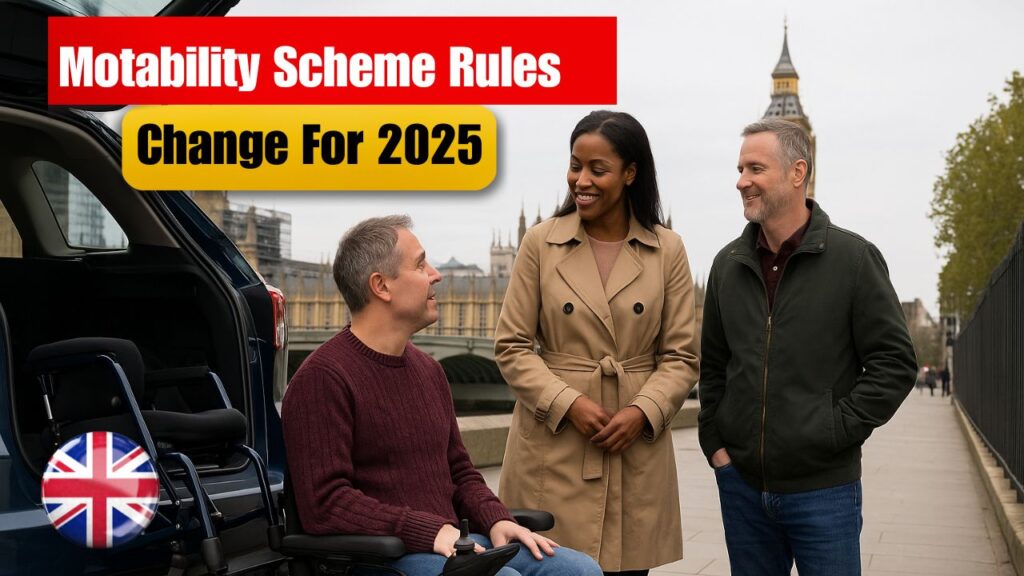The Motability Scheme 2025 has introduced major updates that will impact thousands of PIP claimants and ADP recipients across the UK. Starting this week, these changes are aimed at improving accessibility, vehicle options, and eligibility conditions under the new system. Many people who rely on the scheme for independent travel will need to understand the updated rules and what they mean for their benefits. Let’s take a closer look at what’s changing, who’s affected, and how these adjustments could influence your next Motability vehicle order.

New Eligibility Criteria for PIP and ADP Claimants
Under the revised 2025 policy, PIP claimants and ADP users must meet updated eligibility requirements to qualify for the Motability Scheme. The government has refined the rules to ensure fairer access for those with genuine mobility needs. From October 2025, only claimants with a minimum of 12 months of remaining award entitlement can apply for or renew their Motability lease. Additionally, people transitioning from DLA to PIP will automatically be reviewed for continuity. This shift aims to streamline processes and reduce waiting times while maintaining support for disabled drivers and passengers across the UK.
Major Vehicle and Lease Updates in 2025
The 2025 update also introduces new vehicle options and changes to lease terms. The Motability car list will now include more electric and hybrid vehicles to support the UK’s push toward greener transport. Lease periods have been revised for better flexibility—allowing users to choose between three and five-year plans depending on their needs. Additionally, more accessible vehicles, such as WAVs (Wheelchair Accessible Vehicles), are being added to the scheme with upgraded technology and safety features. These updates ensure beneficiaries enjoy more independence and environmental responsibility while maintaining cost-effective mobility solutions.
Financial Assistance and Transition Support
The Department for Work and Pensions (DWP) has announced improved financial support options for those affected by these new rules. Claimants switching vehicles or losing eligibility will receive transitional assistance through the Good Condition Bonus and Transitional Support Package. The scheme also includes grants to help with advance payments for high-spec vehicles or electric models. These adjustments are designed to ease the financial pressure on families who depend on Motability benefits. Overall, the 2025 changes aim to make the system more inclusive, transparent, and aligned with the UK’s evolving disability and transport goals.
Motability 2025 Changes Summary Table
| Update Area | Old Rule | New 2025 Rule |
|---|---|---|
| Eligibility | Minimum 6-month award period | Minimum 12-month award required |
| Vehicle Options | Limited petrol and diesel models | Expanded electric and hybrid range |
| Lease Duration | Standard 3-year term | Flexible 3 to 5-year options |
| Transition Support | Good Condition Bonus only | Bonus + Transitional Support Package |
| Accessibility | Basic WAV selection | Enhanced WAV tech and design |
FAQ 1: Who qualifies for the 2025 Motability Scheme?
Anyone receiving higher-rate PIP or ADP mobility payments with at least 12 months remaining can qualify.
FAQ 2: Are electric cars part of the new scheme?
Yes, the 2025 update adds many electric and hybrid options to the Motability list.
FAQ 3: Will lease terms become longer?
Claimants can now choose flexible lease durations between three and five years.
FAQ 4: What financial help is available for affected users?
The DWP will provide transitional payments and grants for eligible claimants switching or returning vehicles.




